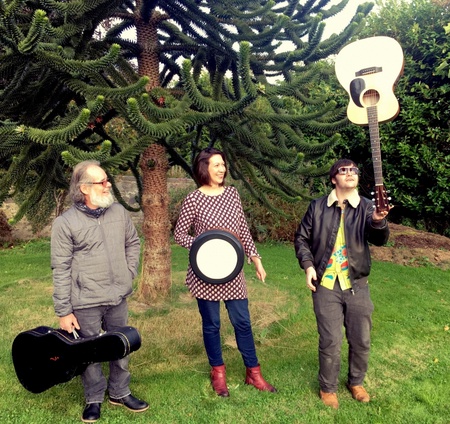The characters, events and stories contained within Aberdeen's unique town records will be brought to life through song and music.
Aberdeen-based musicians Davy Cattanach, Paddy Buchanan and Claire Hawes have written new music based on the city’s UNESCO recognised Burgh records, which date from 1398-1511, and offer a unique insight into life in medieval Scotland.
They have created five new and original folk songs which will be performed at Holyrood on Tuesday March 10 to showcase the significance of this ‘national treasure’, sponsored by north-east MSP Lewis Macdonald.
The Aberdeen registers are the most complete for any Scottish town and historians at the University of Aberdeen have led a project, in collaboration with the City Archives, to painstakingly transcribe the handwritten entries and to open them to the world by making them available as the Aberdeen Registers Online.
Their research has already revealed that Aberdeen may have been the birthplace of Scotch whisky as they uncovered the earliest ever reference to a still for production of the drink (aquavite) in Scotland and demonstrated that a king stepped in to settle a dispute on piracy in Aberdeen. A project is also underway looking at how the stories and characters of the registers might be incorporated into computer games.
Dr Hawes was also part of a team of historians working on the registers. She said: “The Burgh Records offer us a unique glimpse into political and social life in Medieval Aberdeen and are unparalleled for any other Scottish city.
“The challenge was in seeing if we could take academic historical research and use it in the creative process but it has worked well.
“One of the most interesting aspects is that Davy and Paddy have positioned themselves at the perspective of the poorer people of the town – those who had to abide by the rules, rather than getting to make them.
“It’s a group who are really difficult to uncover as a historian – a lot of the focus is on the burgesses who ran the town, simply because we have much more information about them.”
One of the songs, ‘Brokin folkis’, tells the story of those living beyond the law who are referenced in the Burgh Records through a court appearance of a man called Gilbert Litster who says that the broken folks are living outside the town gates waiting to steal the cloth he had dyed.
In another song, ‘Balingar, Kervel’, they explore the types of boats which are mentioned in the records and the trade across the North Sea, taking the key words and turning them into a story.
“There is a lot more freedom in the creative process than you have as a historian”, Dr Hawes added.
“Many of the people we come across might only be mentioned once or twice, when they’re being fined or punished in court, and this tells you nothing at all about their experience – why they did it, what happened to them afterwards, how they might have felt about it.
“The songwriters kind of ran with that, and started creating stories based around these snippets of information and we tried hard to keep to wording with a connection to the fifteenth century but that in itself was a challenge.
“The Registers are written in a mixture of Latin and Middle Scots which would be indecipherable to most people so while we’ve integrated elements of the language and ideas, for accessibility we’ve used more modern Scots.
“We hope that through music we can raise awareness of this national resource and insert something new into both the history of the records and Aberdeen’s vibrant folk music scene.”
The music will be performed by the three songwriters together with percussionist Craig Spink between 6pm and 8pm on March 10 within The Garden Lobby at The Scottish Parliament, Edinburgh.


